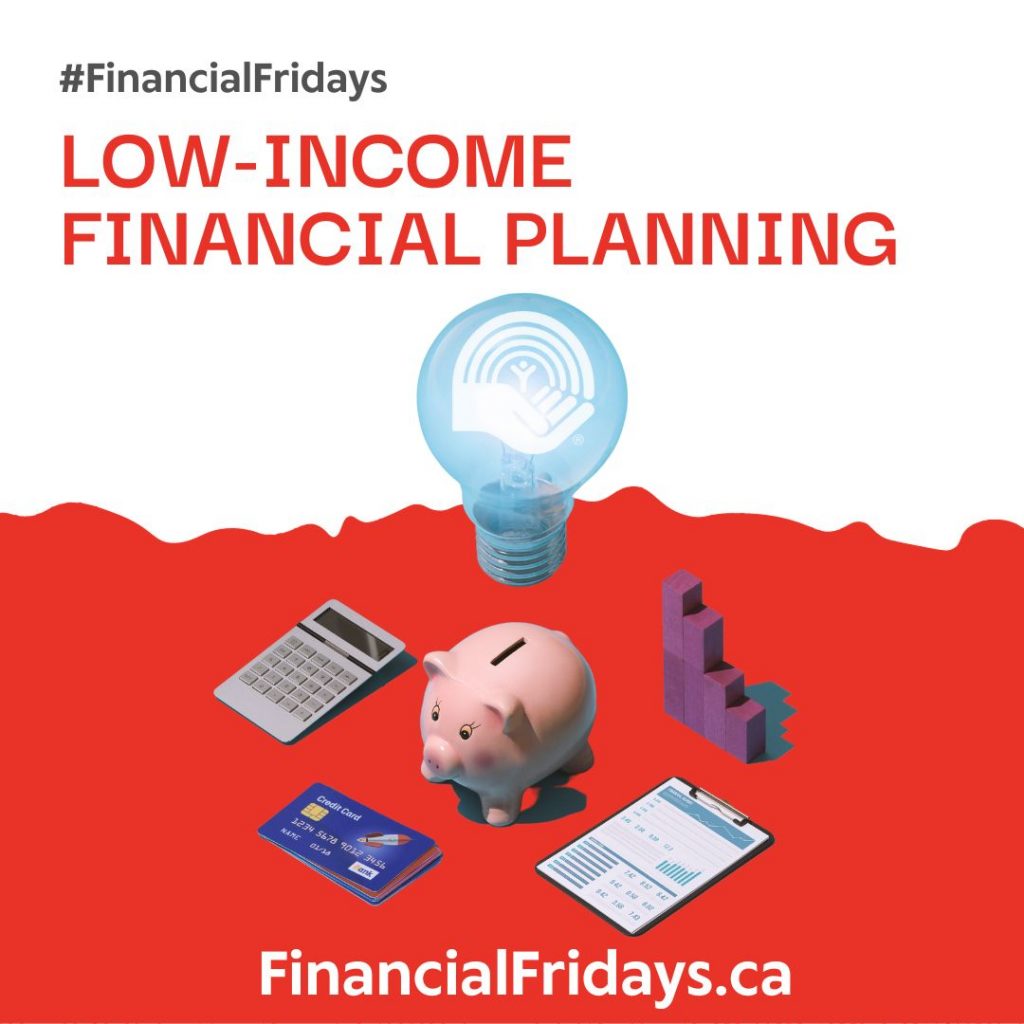#FinancialFridays: Low-Income Financial Planning

Financial planning for those living on a low income can be very different than for those living on a higher income. This is the case when it comes to planning for retirement!
There is a lot of wisdom in saving for your future, in particular retirement. While Registered Retirement Savings Plans (RRSP) are a good way to save for a lot of people, there are some drawbacks if you live on a low income before turning 65 or if you expect to live on a low income after you turn 65.
When you put money into an RRSP, you get to claim it on your taxes which lowers your taxable income for that year. This makes the most sense for people with higher incomes. If you live with a low income, this may not help your taxes as much as you may think. Each person’s situation is their own, so do speak with an accountant when you next file your taxes.
The other side is to think about it when you plan to use the money. When you take money out of an RRSP or Registered Retirement Income Fund (RRIF), that money is taxed as income. Most people expect their incomes to decrease when they retire because they won’t have work income. This means they will most likely have a lower income so the tax they pay on the money coming out of the RRSP or RRIF isn’t an issue.
BUT for those whose income will increase or has increased in retirement or who rely on the Guaranteed Income Supplement (GIS) and Guaranteed Annual Income Systems (GAINS) payments that come with their Old Age Security payments, having income from an RRSP or RRIF can decrease or eliminate their eligibility for the GIS and GAINS. If you must take a significant amount out of your RRSP or RRIF within one year, this can also impact how much you get for your Old Age Security payments as you may be charged an OAS Recovery Tax.
We have seen seniors who have stopped being eligible for the GIS and GAINS payments because of having to take money out of their RRSPs for emergencies. This has dropped their monthly income to below $1,000. This is so little to live on!!! This situation could have been avoided with financial planning information that took the realities of living on a low income into consideration!
If you want to save some money for retirement and you live on a low income or expect to when you turn 65, consider putting money away in a Tax Free Savings Account (TFSA). You won’t get to claim the savings on your tax returns, BUT the money you take out won’t count as income on your taxes. There is a limit on the amount you can put into a TFSA; check your Notice of Assessment from your latest tax filing to see your limit.
If you want to learn more about the OAS and GIS payments (Federal), visit the Old Age Security Benefits Estimator. You can also learn about the Ontario Guaranteed Income Level for Seniors.
You can also learn more with Prosper Canada’s Benefits Wayfinder which is a tool geared towards people living on lower incomes.

